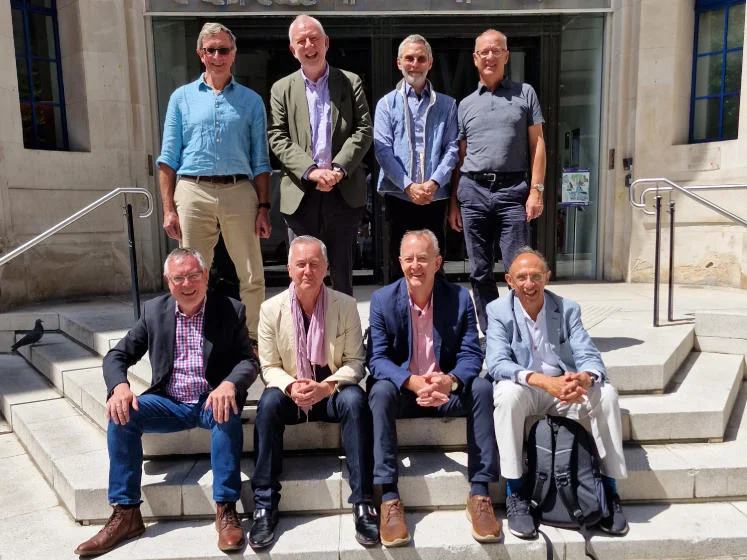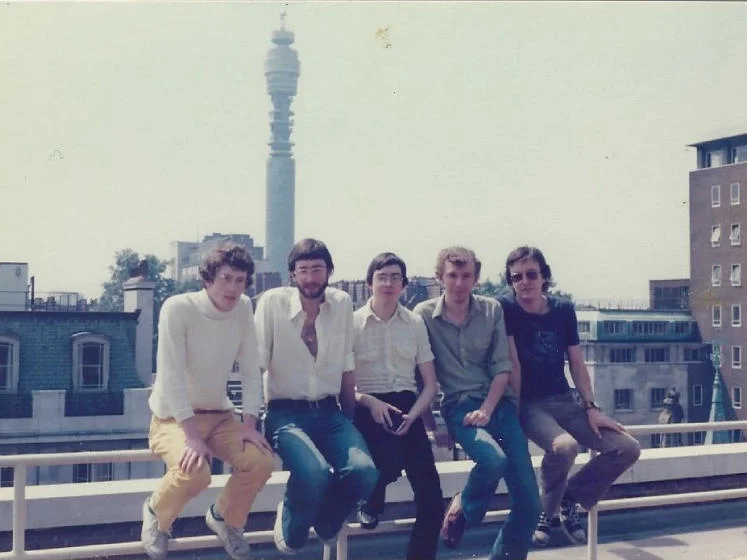The friends you make along the way

For many of our alumni, their time at LSE is one of special memories and long-lasting friendships. When Peter Whitehead (LLB Law 1979) arrived at LSE he became part of a friendship group that is still together today. Inspired by the transformative impact LSE has had on their lives, Peter and his friends have decided to write a book called Class Mates about their time at the School. We caught up with Peter to hear more about his LSE journey and the plans for the book.
Growing up
I grew up in a village in Northamptonshire, in a working class but aspirational family. I passed the 11-plus, but my local Grammar School in Towcester had become comprehensive by the time I arrived. After achieving eight O-levels and three A-levels I applied to LSE. It was the only university I wanted to get to because I liked its rebellious reputation. I chose to study law, but my actual dream was to be a journalist. I ultimately achieved that, spending 27 years with the Financial Times.
Arriving at LSE
I arrived at the School in 1976. Politically, it was an exciting time, with the highlight being the occupation of part of the admin building in 1977 to protest fees for overseas students. It was well covered by the national press and lasted about three weeks. Physically, LSE was small: just the large buildings in and at the end of Houghton Street, plus a few small outposts. But big enough for 3,000 or so students – a third of whom were mature and a third overseas. We probably looked scruffier compared to today’s students, with a lot of blue denim worn, and we were certainly grubbier, with one or two baths a week.

My room was in Passfield Hall, and it was there I met my friends, Jim and Kevin. Jim was from an Irish diaspora family now living in London, and Kevin was the son of a steelworker in the north-east. Our room was no.118 in the annex and the friends we made elsewhere were slowly added to our group. We were all very much united by a common background and a powerful work ethic. However, we also knew how to have fun and our social lives revolved around the dining room and the bar.
Looking back
Our group still meets regularly for lunch, dinner or drinks and we visit LSE whenever we can. We have noted how business-like it all appears and we have discussed how different the vastly expanded LSE is today. This led us to think that our memories might have some value gathered as a collection – a snapshot of how we made it to LSE, what we experienced, what the impact was and how we fared afterwards. Thus the Class Matesproject was born – but sadly it was interrupted when one of our group, Mark Lycett, died three years ago. However, having got so far, I resolved to set a deadline and see something published before the summer of this year.

Class Mates
We hope the book will spark insightful debate around social mobility: what it means, how it works, the impact it can have – both positive and negative – on individuals and their families and friends. We also hope it will be a useful historical document of what LSE was like at an exciting time – and an entertaining read. We have a fantastic foreword written by former government minister David Willetts and the book will include new and old pictures, with memoirs from a dozen or so of our cohort. As Lord Willetts says in the foreword - this is the sort of amazing qualitative research that often gets missed in quantitative studies
If it helps students and potential students to make their life choices, then so much the better. We don't come up with any hard and fast advice for today's youngsters – our experiences are varied and very individual: I knew I wanted to be a journalist from a young age, but most of my friends found professional roles after graduating. The LSE experience is not necessarily vocational and so the one message we might send is that the friends you make along the way can be as important to your future as the subjects you are studying. It has certainly proved to be the case for this bunch of close friends.
Peter Whitehead
(LLB Law 1979)